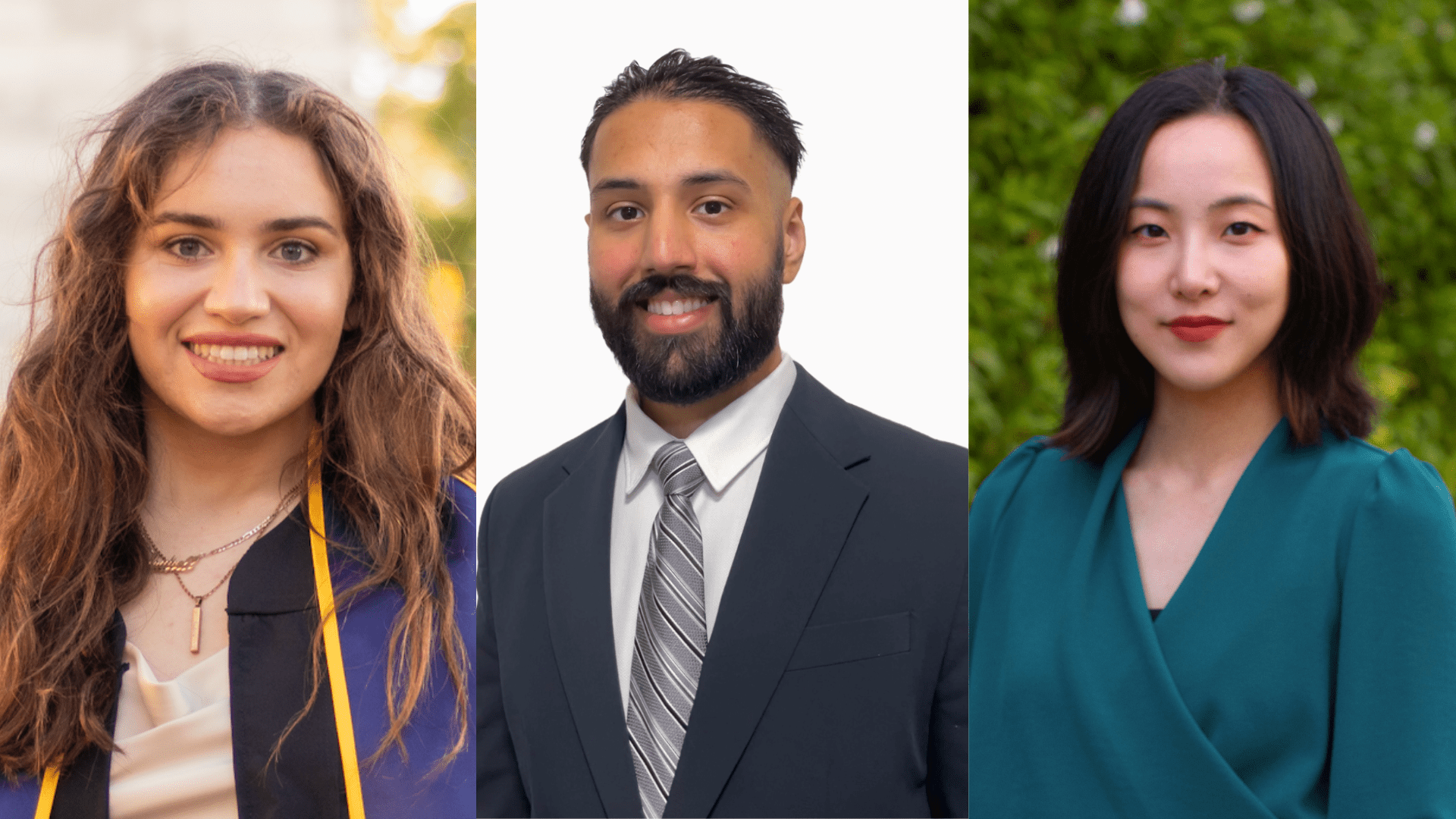UC Law SF Leads Nation in Placing Students with Judges Through Transformative Program

Isabel Samayoa ’26, Surjit Sadhra ’26, and Yingting Xu ’26 gained valuable experience through their judicial internships, working closely with state and federal judges who oversee pivotal cases that can reshape the legal landscape.
Surjit Sadhra ’26 spent last summer working under a federal judge who has overseen major cases on drinking water safety, pharmaceutical business practices, and the right to scrape public data from social media sites.
Sadhra researched novel legal issues, drafted bench memos, and observed live court hearings during a 10-week internship with U.S. District Judge Edward Chen at the federal courthouse half a block away from UC Law San Francisco’s campus.
“We would meet with Judge Chen after every hearing and every Monday to discuss not only the pending cases for the week but also the larger legal world and current events,” Sadhra said. “The fact that we had a lot of face time with Judge Chen speaks to his great mentorship.”
Influential legal experiences for students are a hallmark of a UC Law SF education.
Sadhra is one of 30 UC Law SF students who worked with state and federal judges across the country last summer through the American Bar Association’s Judicial Intern Opportunity Program (JIOP). The program provides opportunities for law students from groups underrepresented in the legal field. They include students from minority racial and ethnic groups, students with disabilities, veterans, students who are economically disadvantaged, students who identify as LGBTQ+, women, and others.
UC Law SF dominated the program this year, sending more students to participate than any other law school by a wide margin. Thirty UC Law SF students worked at 15 different courts in California, New York, Arizona, and Washington, D.C.
Assistant Dean for Career Development Amy Kimmel credits this success to the College’s strong commitment to make judicial internships a priority, as well as its unique location near state and federal courthouses.
“Working for a judge introduces students to a variety of cases, issues, and practice areas; this can help students figure out their own career path,” Kimmel said. “It is valuable experience regardless of what their path turns out to be.”
Beyond developing legal research and writing skills, Kimmel said, students also learn about the innerworkings of the litigation process and gain insight into what makes for an effective, or ineffective, advocate.
Isabel Samayoa ’26 spent two months working with San Francisco Superior Court Judge Ethan Schulman, who has presided over pivotal cases challenging pandemic-era school closures and the classification of gig workers as non-employee contractors.
In her internship, Samayoa reviewed cases—including class actions and mass torts—that were submitted to the court’s Complex Litigation Division. She then wrote internal memos recommending whether cases should be accepted or denied entry into the department. She said the experience helped sharpen her legal research and writing skills.
“I learned to be more meticulous in my writing and gained experience doing legal research—two important skills that will transfer to any legal job in the future,” she said.
Yingting Xu ’26 worked with U.S. District Judge Jacqueline Scott Corley, who has overseen landmark lawsuits involving frozen embryo disputes and gig economy labor laws. Xu drafted judicial orders and opinions and observed live courtroom hearings, an experience that taught her “what good lawyering and bad lawyering look like.”
After telling the judge and clerks of her interest in a specific area of legal practice, Xu also got to work on active employment law cases pending before the court.
“I’m glad I was able to dive deep into an area of the law that fascinates me, and this experience further solidified my passion for pursuing a career in labor and employment law,” she said.